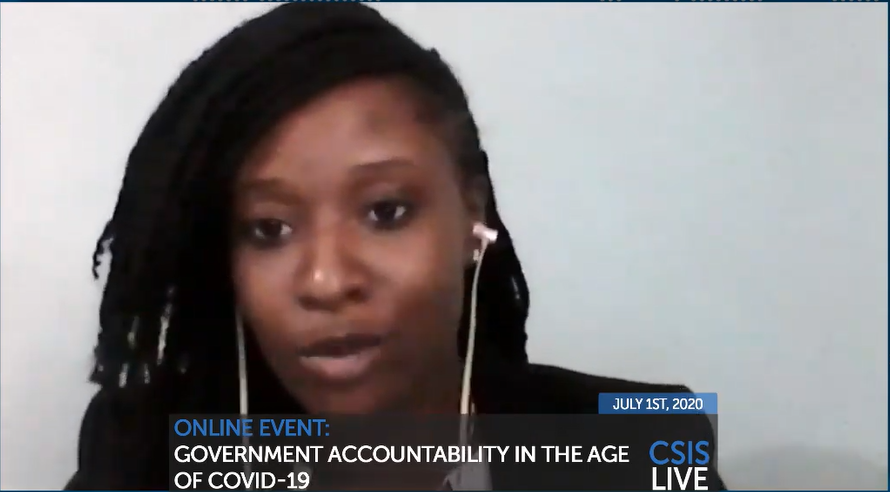Government Accountability Explains Differing Pandemic Responses
July 1, 2020 — The coronavirus health crisis has brought about deep challenges related to misinformation, governance and trust. In a webinar sponsored by the Center for Strategic International Studies on Wednesday, Accountability Lab panelists on the ground in South Africa, Mali and Nepal detailed h
Jericho Casper

July 1, 2020 — The coronavirus health crisis has brought about deep challenges related to misinformation, governance and trust.
In a webinar sponsored by the Center for Strategic International Studies on Wednesday, Accountability Lab panelists on the ground in South Africa, Mali and Nepal detailed how the pandemic is affecting government accountability and corruption.
The Accountability Lab is a non-profit international project, which works to engage citizens in conversations surrounding civil service in nine countries.
Citizens, civil society groups and public sector reformers across several countries are finding creative ways to rebuild trusted communication between states and their people, in the absence of effective national pandemic responses.
“Identifying people who are pushing for change and equipping them with skills, knowledge and resources is how we see systematic change occurring,” said Cheri-Leigh Erasmus, global director of learning at the Accountability Lab.
“Currently, our main objective is to get accurate and validated information out there during the COVID-19 pandemic,” Erasmus said.
In Mali, government instability and citizen unrest was prevalent before the pandemic, which led to increased mistrust when the pandemic hit the country.
“Mali has been going through a multi-dimensional crisis,” said Doussouba Konaté, monitoring officer for Mali at the Accountability Lab.
Malians were facing an economic and governmental crisis even before grappling with the health and misinformation crisis brought about by the pandemic, she said.
“The weakness of the country is obvious,” Konaté added. “There is a lack of trust between the people and the leader.”
Malian people have considered the country’s leader unfit since a 2012 coup d’état, she said.
A distrust of government has led to a general disbelief in the pandemic itself in Mali.
“People don’t believe the information because it’s coming from the government,” said Konaté.
On top of a general distrust in government, vast amounts of disinformation about the virus have been disseminated on WhatsApp, which is widely used as a communications platform by Malians.
The Malian government implemented a curfew from 9 PM to 5 AM on March 26, which quickly ended on May 8 after uprisings protesting both the curfew and the results of the parliamentary election.
The government has taken some socioeconomic measures to reduce utility bills, but people are still struggling to feed their families, panelists said.
The country is easing restrictions and lessening aid, even as cases continue to rise.
Other nations transitioned into lockdown with more ease due to stronger civic environments prior to the pandemic.
Nepal had a comparatively smooth transition in dealing with the pandemic’s impacts, according to Narayan Adhikari, the Nepal director at the Accountability Lab.
The country closed its border to China on January 28, following its first case being reported on January 23, which was an individual traveling from Wuhan.
Nepal has also taken efforts to curb misinformation about the disease within its borders.
On March 21, a 20-year-old man was arrested on charges of spreading misinformation online through an unregistered fake news website, stirring public fear.
After three months in quarantine, the country has reopened, with a relatively low death rate of approximately 14,000, Adhikari reported.
The Accountability Lab aims to utilize a combination of traditional and new media, trusted by local communities, to get accurate information to those who need it.
No shortage of measures has been taken to reach audiences during the pandemic.
In Nepal, a hotline was created so individuals could easily call in with questions and get the facts that they needed.
In Liberia, employees of the lab created rap songs containing important information, which are disseminated on local radio stations and highly popular among children.
“What should civil service look like?” Erasmus asked. “And how do we get individuals active in conversations about civil service?”
“Good governance is hard, but worth investing in,” she said. “All citizens must do their part.”









Member discussion